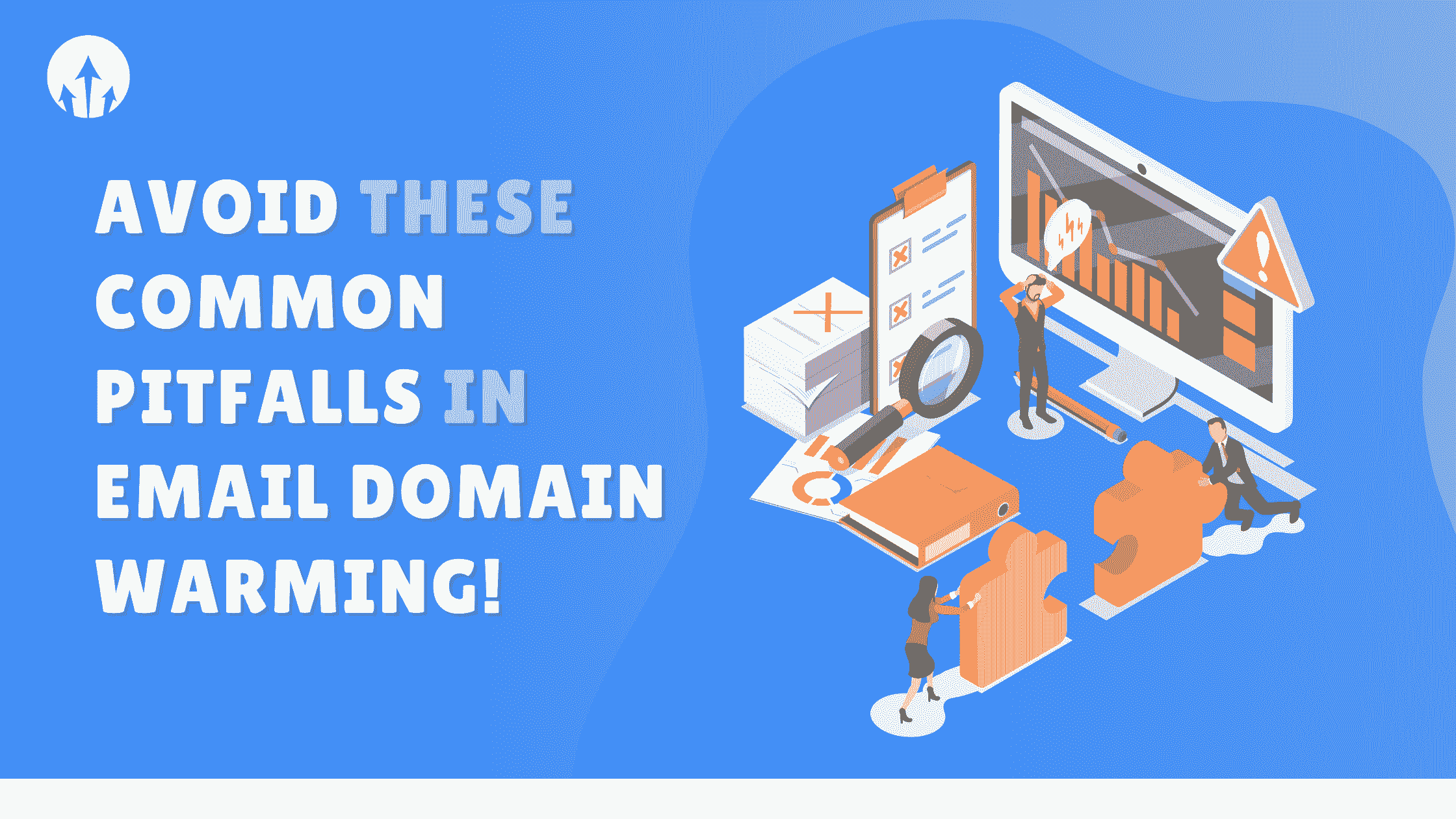Email domain warming is key to making sure your messages land in inboxes instead of spam folders. Many overlook important steps, which can hurt deliverability and result in lost opportunities. In this article, we’ll highlight common mistakes and share practical tips to help you successfully navigate the warm-up process.
What Is Email Domain Warming?
Email domain warming is the gradual increase in email volume from a new domain to build a positive sender reputation with ISPs. This process is vital for new domains; without it, emails can get flagged as spam, leading to high bounce rates and a damaged reputation.
Why Warming Matters
Warming up your domain increases the likelihood that your audience will see it and helps build credibility. Sender reputation, authentication procedures, content quality, and engagement metrics are important aspects of email deliverability.
Benefits of Email Domain Warming
- Better Deliverability: Gradual volume increases help build trust with ISPs, ensuring your emails land in inboxes.
- Enhanced Reputation: A positive sender reputation protects your domain from being blacklisted.
- Higher Engagement: Targeting a small, engaged audience initially boosts open and click rates.
- Improved Response Rates: Trust builds stronger customer relationships, leading to higher conversion rates.
- Sustained Success: A well-warmed domain lays the groundwork for effective email campaigns over time.
Common Mistakes to Avoid
- Skipping the Warm-Up Process: This can lead to your emails being marked as spam. Always take the time to warm up your domain gradually.
- Sending Too Many Emails Too Soon: Start with a few dozen emails daily, increasing as engagement grows. This helps ISPs adjust to your sending patterns.
- Ignoring Engagement Metrics: Low engagement can harm your reputation. Monitor open and click rates to optimize your content.
- Not Segmenting Your List: Tailoring messages to specific audience groups boosts engagement and builds a positive reputation faster.
- Using a Generic Email Address: A custom domain (like [email protected]) appears more professional and trustworthy.
- Neglecting Authentication Protocols: Implement SPF, DKIM, and DMARC to verify your identity and avoid being flagged as spam.
- Overlooking Content Quality: Well-crafted, relevant emails encourage interaction and improve your sender's reputation.
- Inconsistent Sending Patterns: Establish a clear sending schedule to avoid raising suspicions with ISPs.
- Not Testing Emails Before Sending: Use A/B testing to see what resonates best with your audience, improving engagement.
Best Practices for Successful Domain Warming
Weeks 1-4 Warm-Up Schedule:
- Week 1: Start with 10-20 emails daily to a small, engaged audience.
- Week 2: Increase to 50-100 emails, focusing on segmentation.
- Week 3: Scale up to 200-500 emails, targeting new segments.
- Week 4: Aim for 1,000+ emails, adjusting based on engagement.
Real-World Case Studies
- Tech Startup: Implemented a structured warm-up and achieved 98% deliverability.
- E-commerce Brand: Used segmentation, boosting open rates by 40%.
- Non-Profit: Focused on high-quality content, increasing donations by 25%.
- B2B Provider: Fixed authentication issues, improving inbox placement to 90%.
- Health Coach: Used A/B testing for refined content, resulting in higher client sign-ups.
Key Takeaways
You may improve your email marketing approach and steer clear of typical traps by learning from these case studies. You may plan more efficiently and be more creative with the support of practical insights, which will increase your confidence in carrying out successful campaigns.
Additional Resources
Cold Email Automation: Sendcrux helps streamline your outreach efforts.
SMTP for Cold Email: Mailcrux ensures high deliverability for your cold emails.
Email Warm-Up Service: WarmupIP automates the warm-up process for your domain.
By following these guidelines, you can improve your email marketing efforts and ensure your messages reach your audience effectively!

